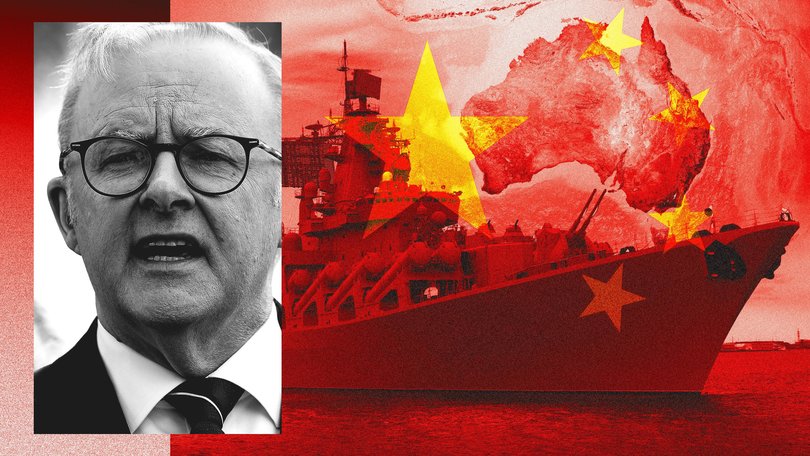EDITORIAL: Pressure grows on Anthony Albanese over defence spending

Amid all the tripwires Prime Minister Anthony Albanese must avoid at the looming Group of 7 summit, one is looking especially troublesome.
Defence spending. In particular, the US view that we don’t spend enough on defence in an increasingly unstable world.
This has been an issue that has irritated President Donald Trump for many years.
Sign up to The Nightly's newsletters.
Get the first look at the digital newspaper, curated daily stories and breaking headlines delivered to your inbox.
By continuing you agree to our Terms and Privacy Policy.He has protested loudly that NATO allies have taken advantage of the US, demanded they spend more on their defence and even threatened to quit the alliance.
Should the expected meeting between Mr Albanese and Mr Trump go ahead on the sidelines of the G7 getting under way in Canada this weekend, it would be a reasonable bet that the President will want to make his point.
The ground has already been prepared. US Defence Secretary Pete Hegseth has floated Washington’s demand for Australia to hike its defence budget to 3.5 per cent of GDP, far beyond the projected 2.3 per cent by 2033.
The US challenge has sparked NATO into responding. The alliance’s Secretary-General Mark Rutte has warned that “wishful thinking will not keep us safe” and has set out a plan for NATO members to spend 5 per cent of GDP on defence..
He said Russia could be ready to use force against NATO in five years and that a “quantum leap” in collective defence was required following the Russian President Vladimir Putin’s illegal invasion of Ukraine.
And last week the UK Labour Government released its long-awaited defence review and pledged to raise spending to 2.5 per cent of GDP by 2027, with the intention to go to 3 per cent by 2033.
But the Albanese Government is seemingly not for turning from its announced strategy.
This week Deputy Prime Minister and Defence Minister Richard Marles said the Government would determine its defence budget based on strategic needs rather than meeting any benchmark.
Mr Albanese largely batted it away too at his National Press Club address on Tuesday.
“Arbitrary figures, you know, lead to a cul-de-sac. And we want to make sure as well that every single dollar that Defence spends results in actual assets,” Mr Albanese said.
But the pressure is set to go up again at the summit.
As The Nightly reports today, the Chinese Navy has sent its two aircraft carriers into the Pacific for the first time, demonstrating to the world its ability as a naval power to threaten America’s dominance of the world’s biggest ocean.
Two carrier battle groups led by the Liaoning and the Shandong operated near the Japanese island of Iwo Jima over the weekend, the Japanese Government reported.
And of course there was another wake-up call when Chinese warships circumnavigated Australia in February.
Mr Albanese may not want to end up in a cul-de-sac.
But he might find himself on a very lonely road if he sticks to his guns when the summit convenes.
